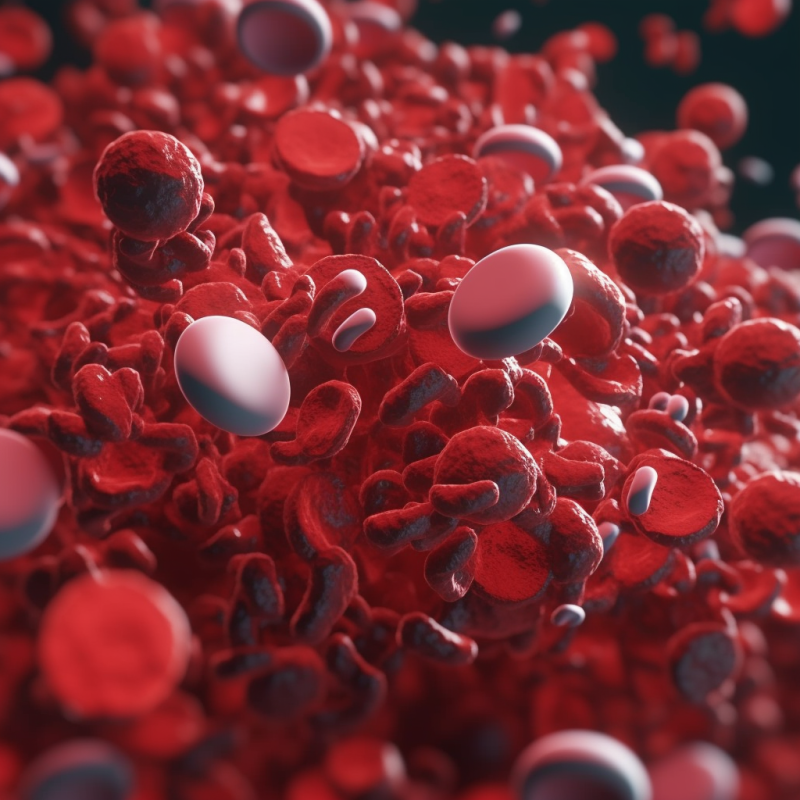Anemia

What is Anemia?
Anemia is a condition in which the body does not have enough healthy red blood cells to transport oxygen to tissues and organs. This can lead to fatigue, weakness, and a variety of other symptoms. There are many types of anemia, with the most common being iron-deficiency anemia.
Who's at risk for Anemia?
Anemia can affect people of all ages, genders, and ethnicities. Factors that can increase the risk of developing anemia include:
- A diet low in iron, vitamin B12, or folic acid
- Chronic diseases, such as kidney disease or cancer
- Blood loss due to injury, surgery, or menstruation
- Pregnancy, which increases the body's demand for iron and other nutrients
- Genetic conditions, such as sickle cell anemia or thalassemia
What causes Anemia?
Anemia can be caused by various factors, including:
- Insufficient production of red blood cells due to a lack of iron, vitamin B12, or folic acid
- Increased destruction of red blood cells, such as in autoimmune hemolytic anemia or sickle cell anemia
- Blood loss, either through injury, surgery, or menstruation
How does Anemia start?
Anemia can develop gradually or suddenly, depending on the cause. It typically begins when the body is unable to produce enough healthy red blood cells or loses them faster than they can be replaced.
What are the symptoms of Anemia?
The symptoms of anemia can vary depending on the severity and type of anemia. Common symptoms include:
- Fatigue and weakness
- Pale or yellowish skin
- Shortness of breath
- Rapid or irregular heartbeat
- Dizziness or lightheadedness
- Cold hands and feet
- Headaches
How is Anemia diagnosed?
A healthcare provider can diagnose anemia through a physical examination and blood tests, including a complete blood count (CBC) and tests to measure iron, vitamin B12, and folic acid levels.
How can Anemia be treated?
The treatment for anemia depends on the underlying cause. Some common treatments include:
- Iron supplements for iron-deficiency anemia
- Vitamin B12 or folic acid supplements for vitamin-deficiency anemia
- Changes to the diet to include more iron-rich foods, such as red meat, poultry, and leafy green vegetables
- Blood transfusions for severe anemia or in cases of significant blood loss
- Medications to stimulate red blood cell production in certain types of anemia, such as erythropoietin for anemia related to chronic kidney disease
- Treatment of the underlying condition or disease causing the anemia
What complications may occur with Anemia?
If left untreated, anemia can lead to complications such as:
- Increased risk of infections due to weakened immune system
- Pregnancy complications, including premature birth, low birth weight, and postpartum depression
- Heart problems, as the heart works harder to pump oxygen-rich blood to the body
- Delayed growth and development in children
How can I prevent Anemia?
To help prevent anemia:
- Eat a balanced diet rich in iron, vitamin B12, and folic acid
- Take iron supplements during pregnancy, as directed by a healthcare provider
- Monitor and manage chronic health conditions that can lead to anemia
- Seek prompt medical attention for any significant blood loss
Long-term management of Anemia
Long-term management of anemia may involve ongoing monitoring of blood counts, addressing the underlying cause of the anemia, and making lifestyle changes to support overall health. In some cases, anemia may be a lifelong condition that requires ongoing treatment and care.
What is recent research saying about Anemia?
Recent research on anemia has focused on understanding the various causes, developing more effective treatments, and exploring new diagnostic tools. Some studies are investigating the role of genetics in anemia, while others are examining the relationship between anemia and other health conditions, such as heart disease and cancer.
Where can I go for more information on Anemia?
For more information on anemia, you can consult reputable sources such as the American Society of Hematology, the National Heart, Lung, and Blood Institute (NHLBI), and the World Health Organization (WHO). These organizations provide accurate, up-to-date information on anemia, its causes, treatments, and ongoing research.

